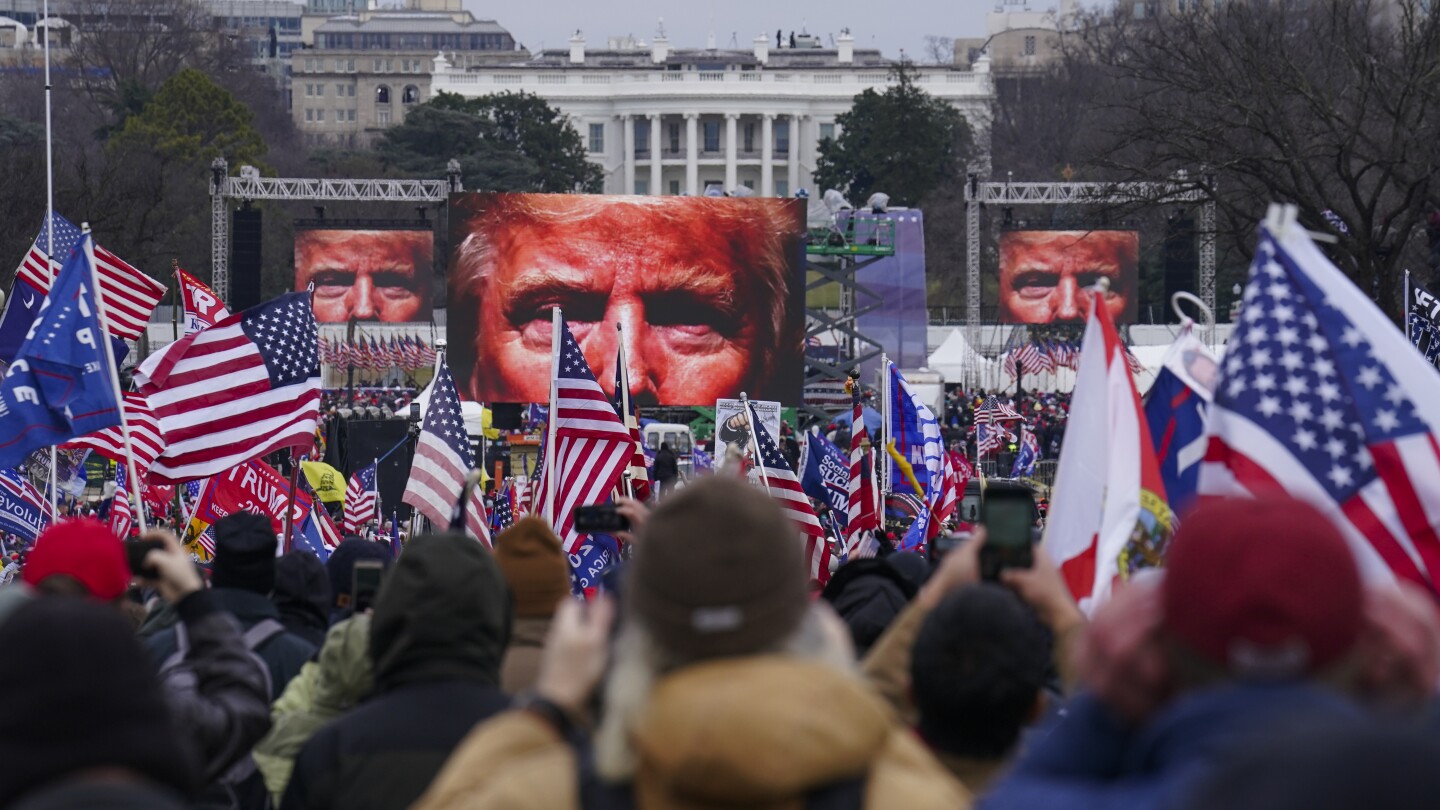It took months before the first mention of Section 3 in a public document. Free Speech For People, a Massachusetts-based liberal nonprofit, sent letters to top election officials in all 50 states in June 2021, warning them not to place Trump on the ballot should he run again in 2024 because he had violated the provision.
None of them took action, part of a general silence in reaction to the group’s arguments.
“People were just treating it as something that was not serious,” recalled John Bonifaz, the group’s co-founder.
By January 2022, the group decided to test Section 3 in court.
Looking for a lower-level defendant, Sherman’s organization zeroed in on Couy Griffin. The subject of one of the earliest Jan. 6 prosecutions, Griffin already has a rich legal record. He was was recorded in a restricted area of the U.S. Capitol as head of a group called Cowboys for Trump. Griffin was convicted of illegally entering the Capitol, but acquitted of engaging in disorderly conduct.
He still served as a commissioner in a rural New Mexico county, which kept CREW’s attention on him. On Sept. 6, 2022, a New Mexico judge ordered Griffin removed from his position. It was the first time in more than 100 years an official had been removed under Section 3. Griffin has appealed to the Supreme Court.



That’s not a question. The authors of the amendment unambiguously stated that they also meant rhe President. President Andrew Jackson, president at the time the 14th Amendment was ratified, explicitly referred to himself as either the “chief executive officer of the United States” or “chief civil executive officer of the United States.” He was referred to as the same during his impeachment.
Antonin Scalia also wrote in an opinion in 2014 that the President was an officer of the United States.
It’s a bad faith argument with no merit. Of course, that doesn’t mean the court won’t agree with it, because the current SCOTUS is illegitimate and fully corrupt.
Andrew Jackson was president like 20 years before the civil war my guy. Ulysses S. Grant was president when the 14th Amendment was ratified in 1868. I’m not really sure how you thought otherwise. Regardless, your other point about his reference to himself as an officer is irrelevant anyways because that’s not what determines him to be an officer of the court.
The actual reason is that when the 14th Amendment was being signed, the specific question of “why does it not mention president” was asked nearly verbatim. One of the writers of the Amendment, who I’m forgetting the name of, replied to them by asking them to read over the part where it says “any officer”. We know this because we have the minutes from that day, we have the transcription as it was recorded by hand at the time.
A federal court already determined Trump to have engaged in insurrection. By all accounts, he should be barred from running.
You’re right, my mistake, it was Andrew Johnson. Grant was president by the time the amendmnt was fully ratified.
You originally said “at the time the 14th Amendment was ratified”. But fair enough, I suppose. I understand what you mean.
You’re right, I definitely was wrong. I also called him Jackson, so clearly I’m not a reliable source of accurate historical information.
Yeah the current SCOTUS could be expected to twist the words any which way. Hopefully not, but it wouldn’t be out of character.